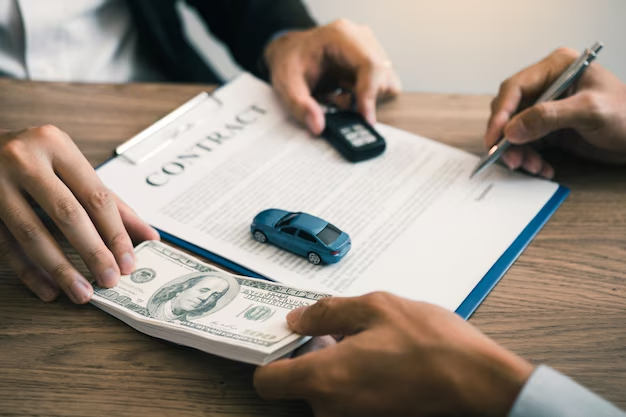What You Need to Know About Driving Without Car Insurance
Imagine cruising down the open road, the sun streaming through your windows, and suddenly, you hear the dreaded sound of sirens behind you. You pull over, and the officer asks for your license and proof of insurance. Panic sets in because you have none. This scenario, a nightmare for many, raises an important question: Can you go to jail for not having car insurance?
Understanding the Legal Requirement for Car Insurance
Car insurance is not just a safety net but a legal requirement in most places. Insurance policies typically cover liability, which means if you cause an accident, you are financially responsible for the damages. Not having insurance can expose you to serious financial risks and legal complications, especially if you are involved in an accident.
Why Car Insurance Is Mandatory
- Financial Protection: Accidents are unpredictable, and their costs can be high. Insurance helps cover repair costs and medical expenses.
- Legal Compliance: Most states mandate at least a minimum level of coverage to ensure all drivers can cover potential damages.
- Risk Mitigation: Insurance pools risk among a large group of people, lowering the cost for everyone.
Consequences of Driving Without Insurance
You might wonder about the immediate consequences of driving uninsured. While the rules and penalties vary by location, several potential outcomes are generally consistent.
Fines and Penalties
Driving without insurance typically results in hefty fines. The fine amount can vary depending on your location and how many times you've been caught without insurance. Repeated offenses often result in increased penalties.
License and Registration Suspension
If you're found without insurance, your license and vehicle registration might be suspended until you can show proof of insurance. Driving with a suspended license or registration can compound your legal troubles.
Impounded Vehicle
Some jurisdictions will impound your vehicle, leading to additional costs for towing and storage. Your vehicle will generally not be released until you provide proof of insurance.
Increased Insurance Rates
Being caught driving uninsured can flag you as high-risk, causing any future policies to be significantly more expensive.
Legal Action and Lawsuits
If you're involved in an accident and are uninsured, you might face lawsuits requiring you to pay out of pocket for damages and injuries, which can lead to severe financial hardship.
Can You Actually Go to Jail?
The crux of the matter is whether a lack of insurance can result in jail time. While not all jurisdictions impose jail sentences for driving without insurance, it can happen under specific circumstances.
Criminal Charges
In some states, driving without insurance is treated as a criminal offense rather than just a civil infraction. Repeat offenders are especially at risk of facing jail time. The possibility of jail increases significantly if you’re involved in an accident while uninsured, especially if it results in injury or death.
Court Orders
In some cases, courts may impose a short jail sentence to reflect the severity of the offense. Typically, these are for multiple offenses or an accident involving an uninsured driver.
Mitigating Risks: What to Do If You're Uninsured
- Purchase Minimum Insurance Coverage: Even the most basic policy helps avoid harsh penalties and laws. Most states offer low-cost options for minimum coverage.
- Look for State Assistance Programs: Some states offer assistance programs for low-income drivers to obtain insurance.
- Pay Fines Promptly: If caught, paying fines quickly can mitigate compounding penalties.
- Work with Legal Aid: If you're facing severe penalties, consult legal aid for the best course of action.
Addressing Common Concerns and Misunderstandings
"I Only Drive Occasionally. Do I Still Need Insurance?"
Yes, insurance is required for all vehicles that are registered and capable of being driven on public roads. Even occasional driving can lead to accidents and thus requires coverage.
"It's Too Expensive. What Can I Do?"
Several options can make insurance more affordable, including comparison shopping, bundling policies, increasing deductibles, and looking for discounts.
"I Don’t Own the Car I Drive. Am I Still Responsible?"
If you're driving a car regularly, ensure the vehicle is covered adequately. Owner's policies usually cover occasional drivers, but frequent use might require extra coverage.
Key Takeaways: 🚗
Below is a summary of crucial points to remember:
- Legal Requirement: It's mandatory to have at least minimum liability insurance to drive legally in most places.
- Consequences of Non-Compliance: These can range from fines and license suspension to potential criminal charges.
- Avoiding Jail: While jail is not the first course of action, repeat offenses and accidents can escalate consequences.
- Affordable Options: Investigate state programs or discounts to secure necessary coverage.
- Regular Check: Always periodically check your insurance policy to ensure it covers anyone who may drive your vehicle.
Navigating the Road with Confidence
Knowing whether you can go to jail for not having car insurance starts with understanding local laws and the significance of car insurance. It's a crucial step in avoiding severe financial setbacks and legal troubles. Being informed, prepared, and compliant empowers you to drive with peace of mind and focus on the journey ahead. Always consult with local regulations and insurance providers to ensure you’re covered and meeting all necessary obligations.

Related Topics
- a Affordable Car Insurance
- a Car Insurance Companies
- a Car Insurance Company
- a Cheap Car Insurance
- a Max Car Insurance
- Are Car Insurance Rates Going Up
- Are Electric Cars More Expensive To Insure
- Are Health Care Insurance Premiums Tax Deductible
- Are Hybrid Cars More Expensive To Insure
- Are Insurance Premiums Tax Deductible For Obama Care
